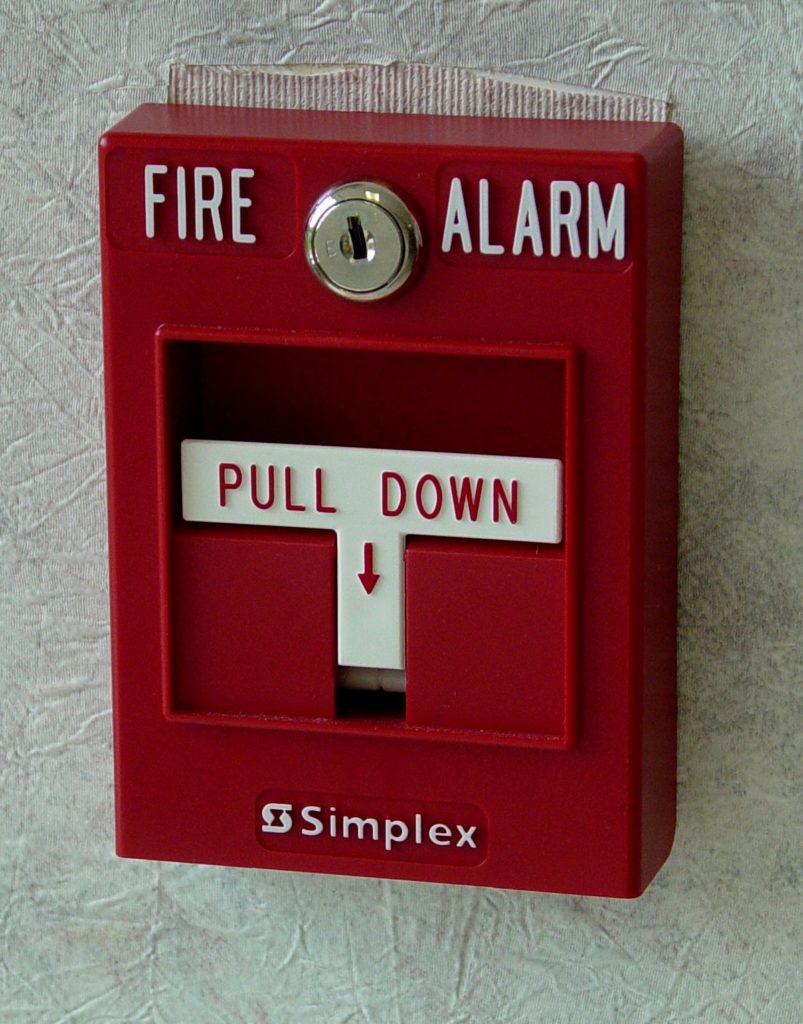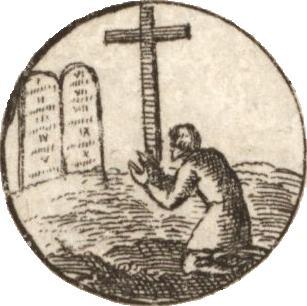The whole Christian life is to be love for God from a pure and sincere heart out of a good conscience. The conscience watches and afflicts us. The conscience is informed by our sources of moral information and by our actions. A clear conscience is necessary to have boldness before God and man. So, in light of all this, how does God tell us to clear our consciences? What does the Bible tell us to do to have pure and clean consciences before Him?
IV. The Clearing of the Conscience
1) Stop ignoring it. Your conscience is there for a reason, and it is not meant to be ignored. Generally speaking, you should not violate your conscience. That is much of the point of Romans 14 and I Corinthians chapters 8 to 10. If you have come to a belief about something using the Word of God, then you must keep to that conviction before the Lord, unless the Word persuades you otherwise. And as we live amongst each

other, we must treat each other’s consciences very carefully, not despising each other’s convictions, nor treading all over one another’s consciences with our own actions. Let every man be fully persuaded in his own mind – using the Word of God. Whether it is right or wrong, it does you no good to ignore the alarm. If your alarm goes off at home, there is either an intruder in the house, or there is a fault in the alarm. But it won’t do you any good to just throw a brick at the siren. It is the same with your conscience – either there is a sin, which needs to be confessed, or the conscience is faulty and needs to be conformed to God’s Word. Ignoring your conscience produces problems of its own. If you ignore your conscience, you begin to think you can sin without consequence. You begin to think that you can obey God in spurts, in stops and starts, and it won’t hurt if you take a break from obeying Him here and there, now and then. You become expert at all kinds of schemes – minimising, blaming, distracting, excuse-making, covering etc. These only decrease the light and further adjust the conscience.
2) Compare your conscience’s judgement with the Word of God. If your conscience is alarmed, it is alarmed because it believes you have failed to do right. You then must compare its judgement with God’s judgement. Psalm 119:11 – Your word I have hidden in my heart, That I might not sin against You! If your conscience is wrong, then you must inform it with the Word. You can tell it that it is a false alarm, and it needs to settle down. 1 John 3:20 – For if our heart condemns us, God is greater than our heart, and knows all things. Furthermore, you need to keep informing your conscience with the Word of God so that it does go off

when it should. This is why it is so important that you are taking in the Word of God daily. This is why it is important that you are with believers every time we meet to open the Word together, so that your conscience can receive the light it needs to correctly judge your actions. If God has said it is a sin to do this or to fail to do that, then you must agree with God and your conscience.
3) If you have sinned, confess and forsake it. Proverbs 28:13 – He who covers his sins will not prosper, But whoever confesses and forsakes them will have mercy. Confession is very simple. It is pleading guilty before God. It is agreeing with His verdict on your actions. The Word of God, by the Spirit of God, through your conscience, accuses, and you agree with Him. You agree with Him as one turning away from the sin. It does no good to agree that something is a sin and continue on in it. There must be a genuine desire to stop. Now there are two reasons why you can confess your sins and expect your conscience to be calm. Firstly, God has provided a blood sacrifice to c leanse you. Recognise that blood alone can cleanse sin, not self-effort, not discipline, not sincerity. Hebrews 9:12-14 – Not with the blood of goats and calves, but with His own blood He entered the Most Holy Place once for all, having obtained eternal redemption. For if the blood of bulls and goats and the ashes of a heifer, sprinkling the unclean, sanctifies for the purifying of the flesh, how much more shall the blood of Christ, who through the eternal Spirit offered Himself without spot to God, cleanse your conscience from dead works to serve the living God Secondly, God delights to show mercy to sinners who repent. Micah 7:18 – Who is a God like You, Pardoning iniquity And passing over the transgression of the remnant of His heritage? He does not retain His anger forever, Because He delights in mercy. If God hated to show mercy, what motive would there be in coming to Him? The fact that He delights to forgive means that you please Him when you confess your sin. Confessing your sin does not displease God; it pleases Him. The sin is what displeases Him, but refusing to confess only makes matters worse. Because God has provided the means for your cleansing from sin, and delights to continue to forgive, we must confess our sins as often as we become aware of them. We must confess our sins as often as we need to. 1 John 1:9 – If we confess our sins, He is faithful and just to forgive us our sins and to cleanse us from all unrighteousness.

Repeated confession is not an abuse of grace if you are trying to please God. This is what happens with a sin we are struggling with. We start out by obeying I John 1:9. We sin again. We confess our sins. But after a few times, we begin to think – I am abusing I John 1:9. I can’t just keep sinning and confessing. This is abusing the grace of God. So instead of confessing, we don’t confess, somehow thinking we are better off if we don’t. But in the meantime, we are hardening ourselves to the cries of our conscience, displeasing the Lord, and living with the fear and lack of boldness that comes from doing so. Here is the truth – the only time I John 1:9 is abused is in the mind of someone who uses it as an excuse to sin again. It is not abused by a person who has sinned again, and needs it. It is not abused by a person who has sinned again and genuinely confesses it with a view to forsaking it. If you are in a pattern of sin, where right now it is like climbing a muddy mountain, and almost every step is a slip, then I John 1:9 is there as often as you need it. There is no limit on how many times God forgives the one who genuinely confesses. He forgives when He knows you will fall again. He forgives knowing how long you will struggle with this sin. But in the meantime – you keep confessing. Because, while you do so – you are keeping your conscience in tune with the Word of God. You are remaining filled with the Spirit. What that will mean is all the likelihood that you will sin in that area less. So it might be 1000 times of I John 1:9 today. Tomorrow it might be 945 and the following day 897. But keep coming back to the blood of Christ. It is there to cleanse you. Not once a day, but over and over and over again. God delights to forgive you. He wants to cleanse you.
There is a Fountain Filled With Blood
Drawn From Immanuel’s Veins
And Sinners Plunged Beneath its flood
Lose all their guilty stains.
4) Walk in the light of forgiveness. If you confess your sins, God makes a promise. Now, once God has made us a promise, what does He want us to do with that promise? He wants us to regard it as true, and act and think like it. Picture that thief on the cross. He called on Jesus to have mercy on Him. Jesus said, “Today you will be with me in paradise.” What if he had responded, “How can I know that? How can I be sure? I don’t feel forgiven. Besides, how can I be saved in my last moments when I have lived my whole life for self? If we weren’t on these crosses, I wouldn’t even have come to you, Jesus. I can’t really be sincere. I don’t see how you could forgive someone like me.” What word would you have used to describe the man’s attitude? Humility? Sincerity? Unbelief. If God has said he will forgive repentant sinners, we honour Him by believing His Word. Like a master will say to a well-trained dog – ‘settle down’ and it will stop

barking, so the Holy Spirit can say to our consciences, settle down. We can say to our own consciences, settle down. The sin has been found, and dealt with. One pastor said that some people would come to him and say, ‘I confess the same sin a thousand times’. He would respond, you should confess it once, and then thank God a thousand times for forgiving you. Your conscience is a precious thing. You ought to live in light of it. You can’t get rid of it. But you can harm it and abuse it. Instead, you have to expose it to the Word of God, agree with God where there is sin, confess and forsake it, and then rest in that forgiveness. We need our boldness back. Boldness in witness, boldness in ministry. It will only come back with a clear conscience.

– David De Bruyn, Professor of Church History, Shepherds’ Seminary Africa

